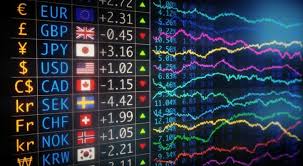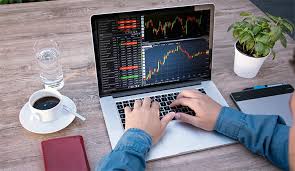
In the dynamic world of currency trading, selecting the right forex trading broker is crucial to your overall trading success. A quality broker can offer you the necessary tools and resources to maximize profits while minimizing risks. One such broker that has gained attention in the industry is forex trading broker ex-zar.com, known for its user-friendly platform and favorable trading conditions. But how do you determine which broker is right for you? This article will provide insights into the vital factors that every trader should consider when choosing a forex broker.
Understanding Forex Trading
Forex trading, or foreign exchange trading, is one of the largest financial markets globally, with a daily trading volume exceeding $6 trillion. This market allows traders to buy, sell, exchange, and speculate on the value of currencies. Since trading sessions occur 24 hours a day, five days a week, traders have the flexibility to make transactions at any time, making forex a popular choice among individuals seeking to capitalize on currency fluctuations.
The Role of a Forex Broker
A forex broker acts as an intermediary between individual traders and the global currency market. They provide the platform on which traders operate, offering access to tools for analysis, execution, and management of trades. The right broker can significantly impact your trading performance, so understanding their role is vital.
Key Factors to Consider When Choosing a Forex Broker
1. Regulation and Licensing
One of the most critical factors to consider is whether the broker is regulated by a reputable authority. Regulatory bodies, such as the Financial Conduct Authority (FCA) in the UK, the Commodity Futures Trading Commission (CFTC) in the US, and the Australian Securities and Investments Commission (ASIC), impose standards that brokers must follow. Trading with a regulated broker ensures a layer of security and transparency.
2. Trading Platform
The trading platform is crucial in your day-to-day trading operations. A robust trading platform should be user-friendly, offer various analytical tools, and support your trading style. Many brokers provide platforms like MetaTrader 4 or MetaTrader 5, which are popular among traders due to their sophisticated features and customization options.

3. Spreads and Commissions
Spreads refer to the difference between the buying and selling price of a currency pair. Different brokers offer varied spreads, and understanding the cost structure is essential for effective trading. While some brokers offer low spreads, they might charge a commission. It’s crucial to weigh these costs against your trading strategy to find the most cost-effective broker for your needs.
4. Leverage Options
Leverage allows traders to control larger positions with a smaller amount of capital, magnifying potential profits (and losses). Different brokers offer varying leverage options, and it’s essential to choose one that aligns with your risk tolerance. Be mindful, as while higher leverage can lead to increased profits, it can also amplify losses substantially.
5. Customer Service and Support
Excellent customer service is vital when navigating the often complicated world of forex trading. Ensure that the broker you choose provides reliable and accessible customer support through multiple channels, such as live chat, email, or phone. Quick and competent support can make a significant difference when you encounter issues or have questions regarding your trades.
6. Educational Resources
For both new and experienced traders, having access to educational materials can enhance trading skills and knowledge. Many brokers provide tutorials, webinars, and market analysis to help traders understand market dynamics better. A broker that invests in its clients‘ education is more likely to create a supportive trading environment.
7. Trading Instruments
While many traders focus solely on currency pairs, the best forex brokers offer a variety of trading instruments, including commodities, indices, and cryptocurrencies. This diversity allows traders to diversify their portfolios and explore various trading strategies, potentially increasing their profitability.
8. Account Types
Different brokers offer various account types to cater to different trading preferences and capital amounts. For example, some brokers offer demo accounts for practice, while others have specific accounts for scalping or long-term trading. Make sure to understand the options available and choose an account type that aligns with your trading strategy.
Conclusion
Choosing the right forex trading broker is an essential step that significantly impacts your trading journey. By considering factors such as regulation, trading platforms, costs, and customer support, you can find a broker that meets your needs. The forex market offers tremendous opportunities for profit, and partnering with the right broker can help you make the most of them. Always conduct thorough research, read reviews, and even test brokers with demo accounts to ensure a fit for your trading style. With the right broker by your side, you’ll be better positioned to navigate the forex trading landscape successfully.